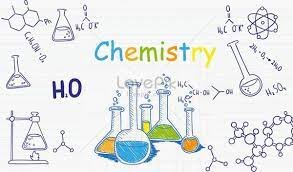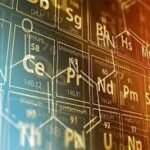Inorganic Chemistry: Exploring the Fascinating World of Inorganic Compounds
Welcome to our website, where we delve into the captivating realm of inorganic chemistry. Inorganic chemistry focuses on the study of elements and compounds that do not contain carbon-hydrogen bonds. Join us as we explore the diverse properties, synthesis methods, and applications of these fascinating substances.

- Inorganic Compounds: Inorganic compounds encompass a wide range of substances, including minerals, metals, metalloids, and nonmetals. They can be found naturally in the Earth’s crust or synthesized in the laboratory. Inorganic compounds play crucial roles in various scientific, industrial, and technological applications.
- Inorganic Reactions: Inorganic reactions involve the interactions and transformations of inorganic compounds. These reactions can include acid-base reactions, redox reactions, precipitation reactions, complexation reactions, and many others. Inorganic reactions form the basis for understanding the behavior of inorganic compounds and their applications in different fields.
- Inorganic Bonding: Inorganic compounds exhibit a variety of bonding types, including ionic bonds, covalent bonds, metallic bonds, and coordination bonds. The nature of bonding in inorganic compounds determines their properties, such as conductivity, solubility, and thermal stability.
- Coordination Complexes: Coordination complexes are central to inorganic chemistry. These compounds consist of a central metal ion or atom coordinated to ligands, which are typically molecules or ions with lone pairs of electrons. Coordination complexes have diverse structures, properties, and applications, including catalysis, medicine, and materials science.
- Inorganic Materials: Inorganic materials, such as ceramics, metals, semiconductors, and superconductors, play crucial roles in industry and technology. They are used in diverse applications, including construction, electronics, energy storage, and catalysis. Inorganic materials often exhibit unique physical, electrical, and thermal properties.
- Main Group Chemistry: Main group elements, including groups 1, 2, 13-18 on the periodic table, form the foundation of inorganic chemistry. The properties and reactions of main group elements are key to understanding chemical behavior, bonding, and reactivity.
- Inorganic Analysis: Analytical techniques are essential in inorganic chemistry to identify and quantify the components of inorganic compounds. Spectroscopic methods, X-ray crystallography, mass spectrometry, and other techniques provide insights into the composition, structure, and properties of inorganic compounds.
At our website, we explore the intriguing realm of inorganic chemistry, unraveling the properties, reactions, and applications of inorganic compounds. Join us as we delve into the diverse nature of inorganic substances, appreciating their fundamental role in various scientific, industrial, and technological fields. Welcome to a place where inorganic chemistry unveils the wonders of the elements and their countless applications in our world.

